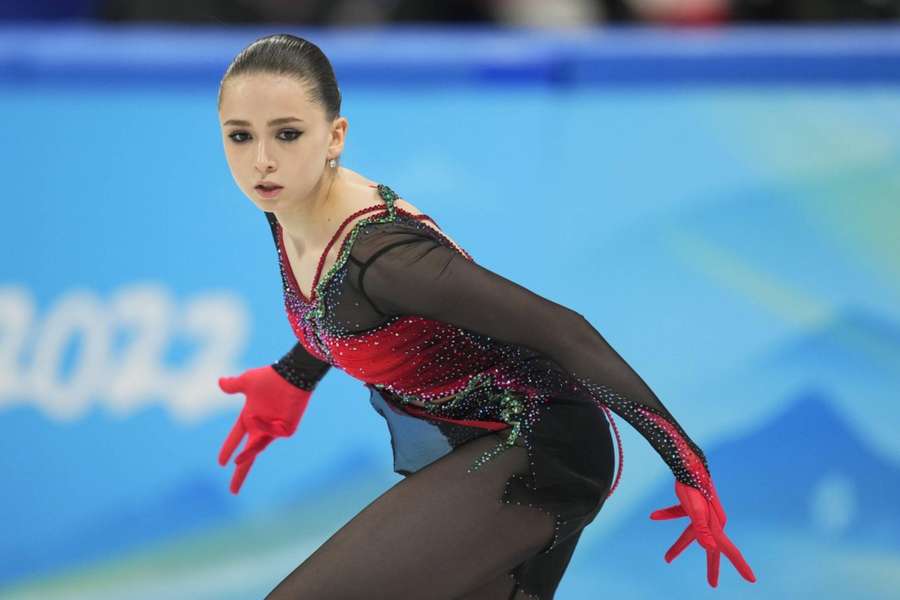Kamila Valieva: Russian agency says doping results will be 'confidential'

At February's Games Valieva, who was 15 at the time, became the first woman to land a quadruple jump in Olympic competition, helping the Russian team secure gold in the team event.
It later emerged that she had earlier tested positive for trimetazidine, a drug used to treat angina but which is banned for athletes because it can boost endurance.
"All processes and procedures related to the processing of results, including the charge and the final decision, are confidential," the Russian Anti-Doping Agency (RUSADA) said in a statement on its website, however without mentioning Valieva's name.
It added that the decision was made to "protect the interests" of the figure skater, who is a "protected person".
Valieva was granted this status as she was under 16 at the time of the alleged violation.
The agency said it "does not intend to announce the date of the hearing, the decision or other details in the case".
The Court of Arbitration for Sport (CAS) allowed Valieva to continue competing at the Olympic Games, citing her young age, though without clearing her of doping.
In the individual final, Valieva fell several times and finished in fourth place.
The International Olympic Committee decided not to award any medals for the team event until Valieva's doping case has been resolved.

